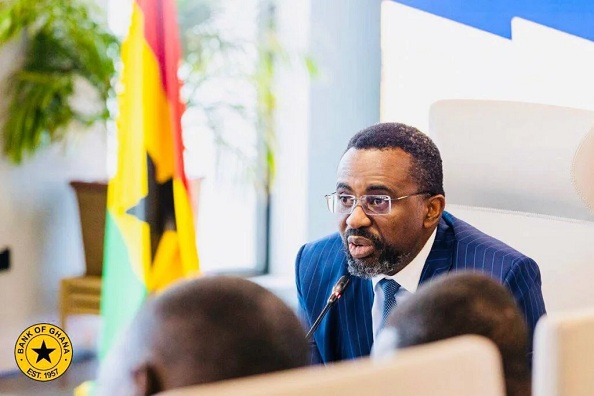Ghana is well-positioned to exit the International Monetary Fund’s $3 billion Extended Credit Facility (ECF) programme when it ends in May 2026, says, Dr. Johnson Pandit Asiama, Bank of Ghana (BoG) Governor.
Dr Asiama said the country has started running ahead of programme targets on virtually all indicators, demonstrating a strong economic turnaround from the challenges experienced in the past few years.
He said this at the Governor Talks Series on the sidelines of the 2025 IMF/World Bank Group Annual Meetings in Washington D.C, USA, on the topic: “From crisis to confidence: Ghana’s journey to macroeconomic stabilisation.”
“We are happy to announce that we will be able to exit the fund programme come next year,” said, Dr. Asiama, who noted uncertainties about the programme’s continuation earlier in the year.
He attributed this to the challenges in the economy, characterised by the aftermath of the 2022 domestic debt exchange programme (DDEP), highly expansionary fiscal policy, exit from international financial markets, multiple sovereign downgrades, high liquidity, elevated inflation and a rapidly depreciating exchange rate.
However, he said the government went ahead with the programme and structural reforms, had since turned things around, achieving “remarkable stabilisation” in the last eight months.
He stated that Ghana was exceeding expectations on the programme targets – inflation has declined from nearly 24 per cent when he took office to 9.4 per cent currently, reserves accumulation of 4.5 months and upgrades from various rating agencies.
“Ghana is back; we are running ahead of programme targets for the year on almost everything – inflation, reserves build-up, economic growth,” Governor Asiama said, and gave assurance, saying, “we will not compromise, even as we ease downward.”
He, however, cautioned that challenges remained for the country, largely due to exposure to external risks from volatile commodity prices, requiring sustained sound macroeconomic policies and adequate reserves as buffers against potential headwinds.
“We want to build more reserves because as you know, we are still a commodity exporting country. The risks remain,” he stated, urging coordinated stabilisation efforts across multiple fronts, including complementary efforts from fiscal authorities.
GNA





